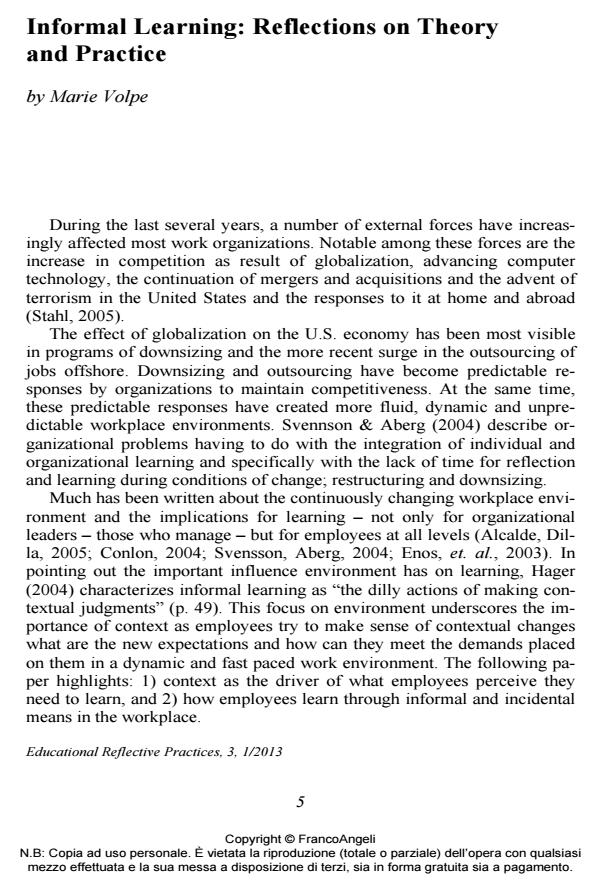Informal Learning: Reflections on Theory and Practice
Journal title EDUCATIONAL REFLECTIVE PRACTICES
Author/s Marie Volpe
Publishing Year 2013 Issue 2013/1
Language English Pages 6 P. 5-10 File size 138 KB
DOI 10.3280/ERP2013-001001
DOI is like a bar code for intellectual property: to have more infomation
click here
Below, you can see the article first page
If you want to buy this article in PDF format, you can do it, following the instructions to buy download credits

FrancoAngeli is member of Publishers International Linking Association, Inc (PILA), a not-for-profit association which run the CrossRef service enabling links to and from online scholarly content.
Much has been written about the continuously changing workplace environment and the implications for learning - not only for organizational leaders - those who manage - but for employees at all levels. Several theorists underscore that learning is strongly influenced by the workplace environment, by the context in which people work, by informal learning. The paper highlights 1) context as the driver of what employees perceive they need to learn, and 2) how employees learn through informal and incidental means in the workplace.
Marie Volpe, Informal Learning: Reflections on Theory and Practice in "EDUCATIONAL REFLECTIVE PRACTICES" 1/2013, pp 5-10, DOI: 10.3280/ERP2013-001001